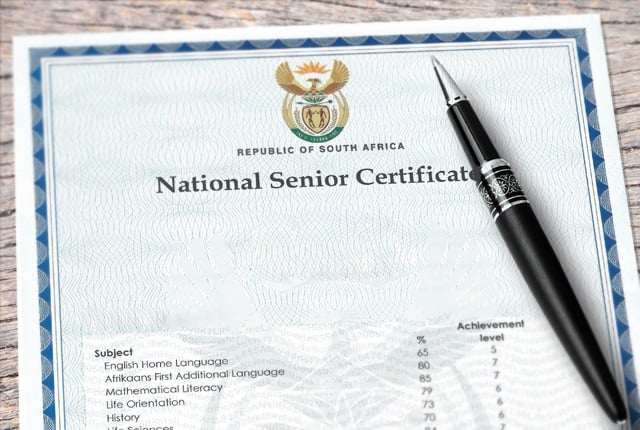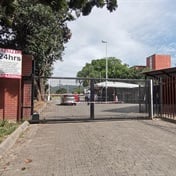
No teachers, no resources, inadequate facilities – poor students are still up against seemingly insurmountable odds in their battle for education.
Ntsizwa Senior Secondary School, a rural Eastern Cape School, was one of the country’s worst performing school in 2015, with a pass rate of 2.2%. For 2016, 14.6 % of its Grade 12 pupils passed.
Despite the slight improvement, the school has still found itself among those that performed below 40% over a five-year period since 2012, according to the department of education.
Speaking on condition of anonymity, the principal of one of the worst performing schools in Limpopo said that they had three teachers for the entire school.
“It is very difficult. There were 28 matric students last year and only one passed. The department knows what we are going through yet they haven’t done anything to help,” she said.
Some of the pupils who attend the school have to walk up to seven kilometres a day, and while they have a good infrastructural facility with electricity, they cannot afford any resources.
“We don’t have any computers or even a photocopying machine. We are a no-fee school and therefore there isn’t any money coming into the school,” she said.
The school currently has 114 pupils ranging from Grade 8 to matric, but because of the shortage of teachers, four subjects weren’t taught last year to the matric class – English, geography, Sepedi and agricultural sciences.
“I spoke to the matric class today and a lot of them were blaming themselves for not working hard enough, but what can they do when we also don’t have the resources to teach them?” she asked.
Persistent inequality
Pupils who attend rural schools suffer the most as a result of inequality.
“These results must be taken with a pinch of salt because the blanket quantitative pass rates reported nationally and for each province, conceal deeper patterns of inequality thus compromising on quality,” the Inkatha Freedom Party Youth Brigade’s Mkhuleko Hlengwa said.
“Those hailing from rural schools will bear the brutal brunt of the expensive cost to study in institutions of higher learning.”
Professor Sarah Gravett, the University of Johannesburg’s executive dean of the faculty of education, said that while initiatives were being implemented to help pupils in rural areas, more work needed to be done.
“There is a concerted effort to focus on rural schools and ensure that the situation is improved in impoverished areas but much still needs to be done.
"There is definitely a correlation between the socioeconomic situation of a child and the results of their schooling. It is much easier to get the better results from a privileged background.
"The sad part is that the less privileged schools need the teachers that are in the better performing schools and regrettably it’s not the case in the country yet,” Gravett said.
These sentiments were echoed by the Progressive Students Movement, who pointed out that the majority of schools with pass rates below 30% were quintile-one or -two schools (poor schools).
“The education system continues to reward those who have had a solid foundation phase teaching, and fails those whom due to poverty had an inadequate primary schooling,” said the organisation’s Kgothatso Ramautswa and Kabelo Nthekiso.
In a strongly worded statement Ramautswa and Nthekiso expressed the need for investment in early childhood development, which they believed would help close the gap between children from affluent and impoverished households.
“Given that many South African children enter formal schooling with their development potential significantly compromised, investment in early childhood development is arguably the most cost-efficient fiscal expenditure to directly impact that gap.
“But the social development department’s early childhood development audit of 2013 reveals that the school infrastructure crisis in this country extends to these centres ...
"Lack of learning and teaching support materials is widespread, and only 10% of early childhood development practitioners have a qualification over and above matric, and only 25% have received some training.”
Gravett also emphasised the importance of the early stages of learning, including foundation phase and primary school learning.
“We need to during this time, reflect on the rest of the education system. Not only focus on matric.
"If we really want to see improvement in subjects such as maths we need to understand that it’s too late to try and rectify issues and misconceptions in the later years of schooling. This has to be addressed in the early years of schooling,” she said.
Drop-out rate
The Progressive Students Movement has also blamed the high drop-out rate on the absence of a solid early schooling foundation.
“Learners eventually find themselves too far behind academically, making learning a demotivating and stressful experience,” said Ramautswa and Nthekiso.
The high number of school drop-outs was also addressed by the Economic Freedom Fighters.
“The drop-out rate remains high and the majority of the youth that have been left out in the past 12 years cannot be accounted for.
"This means that the remaining 60% has either failed or dropped out, and of the dropped out, many cannot be accounted for even beyond the technical and vocational education and training colleges” Mbuyiseni Ndlozi said.
Gravett believes that while the drop-out rate is a huge problem, one system that may help alleviate this is the introduction of the three-stream education system this year, in accordance with the National Development Plan.
“We need to really change the mindset that attending a university is the only means of furthering one’s career and future.
"There is a plan to introduce the streaming of learners into other career paths by the department of education, and this will provide learners with other options instead of just thinking that a university is their only form of education.
"We must change this mindset in order to open the career path because there are skills which are needed within our economy which will greatly alleviate unemployment levels,” Gravett said.
The system will focus on three streams or avenues of training including the academic stream, technical vocational stream and a technical occupational stream.
“One of the major reasons for introducing this system is to improve retention of learners and decrease drop-out rates as well as to meet the skills demands of the economy and address unemployment,” the department of basic education said last year.
In response to the criticism, particularly on Ramautswa and Nthekiso’s comments, education department spokesperson Elijah Mhlanga said there were many stakeholders who had divergent views about what needed to be done to improve performance.
“We appreciate their passion for education and we trust that they will continue to play their part in the sector hoping that in time they will use constructive channels of communication.”
But what happens to those pupils who have, against all odds, managed to pass Grade 12?
“The struggle of those who have passed is now to galvanise funds to access the exorbitant university and college institutions.
"It is a fact that of these young people, in particular the black child, many will knock at countless doors seeking after funds to access higher learning without success,” said Ndlozi.
“These [matric] results should make the need for free higher education even more urgent than ever if we are not to lose these young people into the same black hole that swallows those who drop out.”
| |||||||||||||
| |||||||||||||




 Publications
Publications
 Partners
Partners








